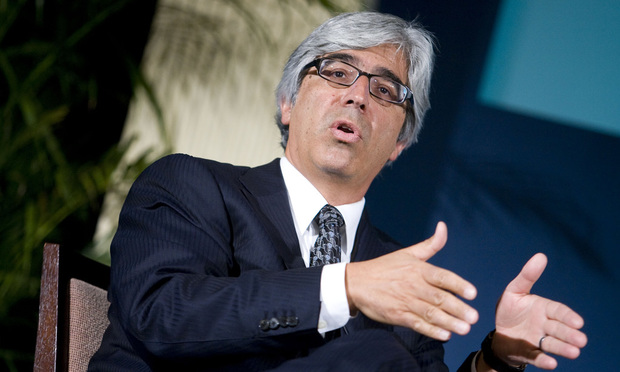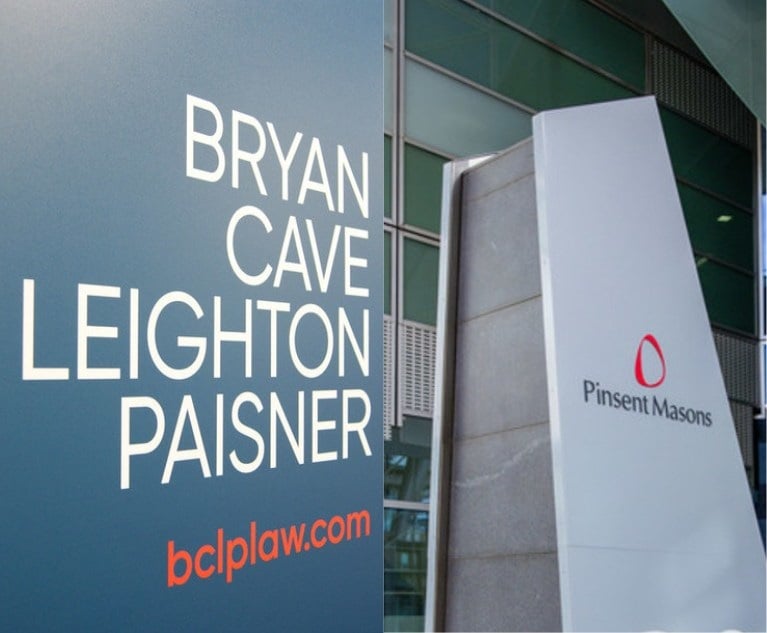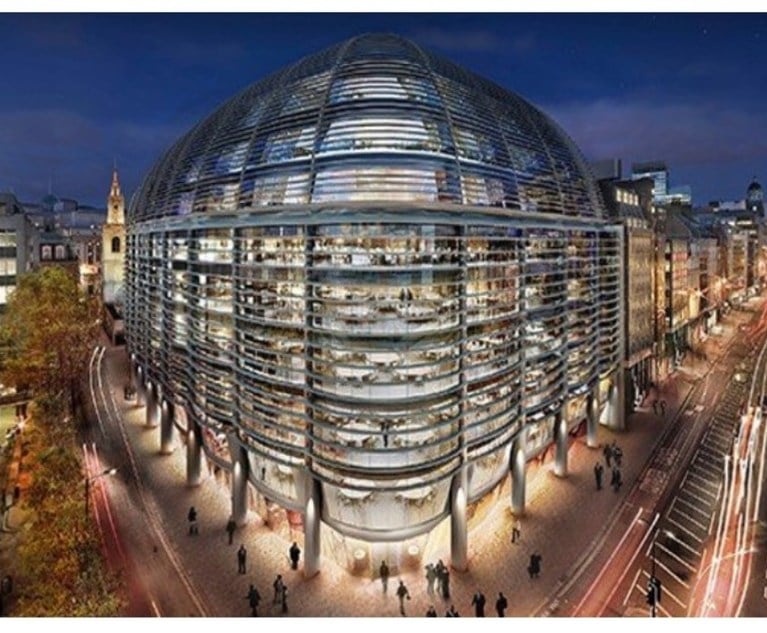Gibson Dunn's Boutrous Asks U.S. Appeals Court to Uphold Dismissal of City's Climate Change Suit
Attorneys for New York City maintain that the case is not about emissions at all. Rather, they contended the companies should be held responsible for social costs they knew would result from the production and sale of fossil fuels to consumers.
November 22, 2019 at 02:53 PM
4 minute read
The original version of this story was published on New York Law Journal
 Theodore Boutrous Jr. Photo: Diego M. Radzinschi/ALM
Theodore Boutrous Jr. Photo: Diego M. Radzinschi/ALM
Gibson, Dunn & Crutcher partner Theodore Boutrous Jr. on Friday defended a Manhattan federal judge's decision to dismiss a lawsuit from the city of New York seeking to hold some of the world's largest oil and gas producers financially responsible for their contributions to climate change, saying the case raised important concerns about interstate and international regulations.
Boutrous, arguing on behalf of Chevron Corp., BP PLC, ConocoPhillips, Exxon Mobil Corp. and Royal Dutch Shell, told a three-judge panel of the U.S. Court of Appeals for the Second Circuit, that that the city's "unprecedented" nuisance and trespass suit was merely an attempt to use New York law to pursue emissions-related claims that were pre-empted by federal law.
If allowed to proceed, the lawsuit could create a "unprecedented sweeping, interstate, international, worldwide" tort, which would open the door for states to indirectly regulate out-of-state business activity, he said.
"The only way to escape liability here is to stop producing oil, according to the city," Boutrous, the global co-chair of Gibson Dunn's litigation group said during oral arguments Friday morning.
"The city of New York simply cannot project its law," he said. "It would be improper to do so."
U.S. District Judge John Keenan of the Southern District of New York dismissed the complaint last July, finding that it was, at its core, about emissions. As such, Keenan said, the action was doomed to the same fate as an early suit the city was party to, which ended when the U.S. Supreme Court found in 2011 that the federal Clean Air Act displaces common-law claims.
"Climate change is a fact of life, as is not contested by defendants," Keenan wrote in the opinion. "But the serious problems caused thereby are not for the judiciary to ameliorate. Global warming and solutions thereto must be addressed by the two other branches of government."
Attorneys for New York City, however, maintain that the case is not about emissions at all. Rather, they contended the companies should be held responsible for social costs they knew would result from the production and sale of fossil fuels to consumers. In New York, those have included the construction of sea walls, the implementation of public health programmes and other "resiliency measures" to protect public and municipal property from rising sea levels, increased heat and precipitation and more frequent extreme weather.
John Moore, an attorney with the city's Law Department, said on Friday that emissions were a "step in the chain" that causes harm from downstream consumption. There was no conflict with federal law, he said, when the claims do not affect interstate commerce, and once the city was seen as not acting as a regulator, the "bulk of the [lower] court's ruling no longer holds water".
"All we're asking for is compensation for the harms," he said. "We're not seeking to impose regulations."
That line of argument, though, seemed to trouble Judge Richard Sullivan of the U.S. Court of Appeals for the Second Circuit, an appointee of President Donald Trump, who interjected at one point that "it seems like you're trying to have it both ways".
The panel also included Judges Michael Park, a fellow Trump appointee, and Amalya Kearse, who was appointed to the court by President Jimmy Carter in 1979.
The suit alleges that the five companies are responsible for 11% of all fossil fuel-related emissions since the start of the Industrial Revolution, and that the firms' industry-leading "public relations strategy… downplaying the risks of climate change and promoting fossil fuel use despite the risks", made them even more liable.
Boutrous on Friday acknowledged that "global warming is an important problem", but said that tort suits are not the way to resolve it.
Read more:
New York City Sues Energy Companies Over Climate Change
Energy Companies, City Tangle Over Motion to Dismiss Climate Change Suit
Energy Companies Win Dismissal of New York City Climate Change Suit
NOT FOR REPRINT
© 2025 ALM Global, LLC, All Rights Reserved. Request academic re-use from www.copyright.com. All other uses, submit a request to [email protected]. For more information visit Asset & Logo Licensing.
You Might Like
View All
A&O Shearman, Cleary Gottlieb Act on $700M Dunlop Tire Brand Sale to Japan's Sumitomo


Stewarts and DAC Beachcroft Lead on £2B Leicester City Helicopter Crash Litigation

Israel's Rushed Corporate Tax May Spark Law Firm Mergers, Boost Large Firms Including Gornitzky
4 minute readLaw Firms Mentioned
Trending Stories
- 1Lavish 'Lies' Led to Investors Being Fleeced in Nine-Figure International Crypto Scam
- 2AstraZeneca Files Flurry of Lawsuits to Protect Cancer Treatment Drug
- 3American Airlines Legal Chief Departs for Warner Bros. Discovery
- 4New Montgomery Bar President Aims to Boost Lawyer Referral Service
- 5Deadline Extended for Southeastern Legal Awards
Who Got The Work
Michael G. Bongiorno, Andrew Scott Dulberg and Elizabeth E. Driscoll from Wilmer Cutler Pickering Hale and Dorr have stepped in to represent Symbotic Inc., an A.I.-enabled technology platform that focuses on increasing supply chain efficiency, and other defendants in a pending shareholder derivative lawsuit. The case, filed Oct. 2 in Massachusetts District Court by the Brown Law Firm on behalf of Stephen Austen, accuses certain officers and directors of misleading investors in regard to Symbotic's potential for margin growth by failing to disclose that the company was not equipped to timely deploy its systems or manage expenses through project delays. The case, assigned to U.S. District Judge Nathaniel M. Gorton, is 1:24-cv-12522, Austen v. Cohen et al.
Who Got The Work
Edmund Polubinski and Marie Killmond of Davis Polk & Wardwell have entered appearances for data platform software development company MongoDB and other defendants in a pending shareholder derivative lawsuit. The action, filed Oct. 7 in New York Southern District Court by the Brown Law Firm, accuses the company's directors and/or officers of falsely expressing confidence in the company’s restructuring of its sales incentive plan and downplaying the severity of decreases in its upfront commitments. The case is 1:24-cv-07594, Roy v. Ittycheria et al.
Who Got The Work
Amy O. Bruchs and Kurt F. Ellison of Michael Best & Friedrich have entered appearances for Epic Systems Corp. in a pending employment discrimination lawsuit. The suit was filed Sept. 7 in Wisconsin Western District Court by Levine Eisberner LLC and Siri & Glimstad on behalf of a project manager who claims that he was wrongfully terminated after applying for a religious exemption to the defendant's COVID-19 vaccine mandate. The case, assigned to U.S. Magistrate Judge Anita Marie Boor, is 3:24-cv-00630, Secker, Nathan v. Epic Systems Corporation.
Who Got The Work
David X. Sullivan, Thomas J. Finn and Gregory A. Hall from McCarter & English have entered appearances for Sunrun Installation Services in a pending civil rights lawsuit. The complaint was filed Sept. 4 in Connecticut District Court by attorney Robert M. Berke on behalf of former employee George Edward Steins, who was arrested and charged with employing an unregistered home improvement salesperson. The complaint alleges that had Sunrun informed the Connecticut Department of Consumer Protection that the plaintiff's employment had ended in 2017 and that he no longer held Sunrun's home improvement contractor license, he would not have been hit with charges, which were dismissed in May 2024. The case, assigned to U.S. District Judge Jeffrey A. Meyer, is 3:24-cv-01423, Steins v. Sunrun, Inc. et al.
Who Got The Work
Greenberg Traurig shareholder Joshua L. Raskin has entered an appearance for boohoo.com UK Ltd. in a pending patent infringement lawsuit. The suit, filed Sept. 3 in Texas Eastern District Court by Rozier Hardt McDonough on behalf of Alto Dynamics, asserts five patents related to an online shopping platform. The case, assigned to U.S. District Judge Rodney Gilstrap, is 2:24-cv-00719, Alto Dynamics, LLC v. boohoo.com UK Limited.
Featured Firms
Law Offices of Gary Martin Hays & Associates, P.C.
(470) 294-1674
Law Offices of Mark E. Salomone
(857) 444-6468
Smith & Hassler
(713) 739-1250








